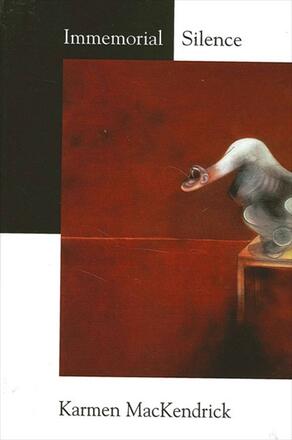
Immemorial Silence
Alternative formats available from:
Treats time, eternity, language, and silence in an original way.
Description
Drawing on philosophy, theology, and literature, from the early Middle Ages to the present, Immemorial Silence traces a series of intertwined ideas. Exploring silence as the absence of language, which is nonetheless inherent in language itself, and eternity as the outside of time, cutting through time itself, the book unfolds a series of connections between these temporal and linguistic themes.
Karmen MacKendrick is Assistant Professor of Philosophy at Le Moyne College. She is the author of Counterpleasures, also published by SUNY Press.
Reviews
"The basic point of the book—to elucidate the dependence of language on silence, time on eternity, love on forgetfulness—is important and is richly articulated. The scholarship is of exactly the right sort: It goes straight at figures such as Augustine, Bataille, Meister Eckhart, Blanchot, and Rimbaud, and addresses them as contemporaries and without any haze of secondary scholarship. MacKendrick uses these sources for her own purposes and orchestrates them into a kind of symphony in which even their contrasting timbres become part of a gorgeous harmony and a comprehensible structure. She has respect but no reverence for the figures she discusses. This book is outstanding. " — Crispin Sartwell, author of End of Story: Toward an Annihilation of Language and History
"A poetically uttered, wonderfully wise, and richly insightful invitation to enter into the phenomenon of silence. MacKendrick is equally at home with thinkers such as Blanchot, Bataille, Levinas, Heidegger, Augustine or Eckhart, and poets such as Celan and Hölderlin. Her book isn't simply an intriguing read for anyone interested in the limits of language. It's also an opportunity for personal transformation. We're all in her debt for this sensitive and beautiful gift. " — Kerry S. Walters, coeditor of Ethical Vegetarianism: From Pythagoras to Peter Singer
"I like MacKendrick's development and articulation of an attitude toward time and language. This attitude is recognizably religious without necessarily being theistic or conventional, and while it recognizes time and language as 'fallen,' it also emphasizes the possibilities for redemption opened up by this same fallenness. " — Bruce Milem, Western Oregon University